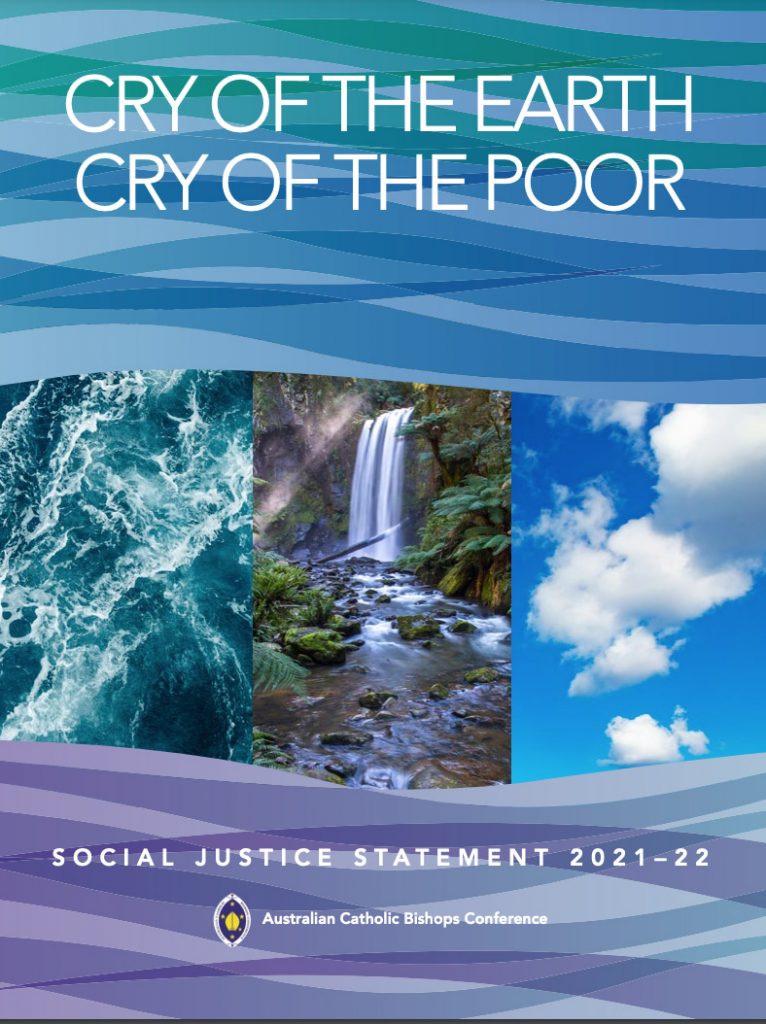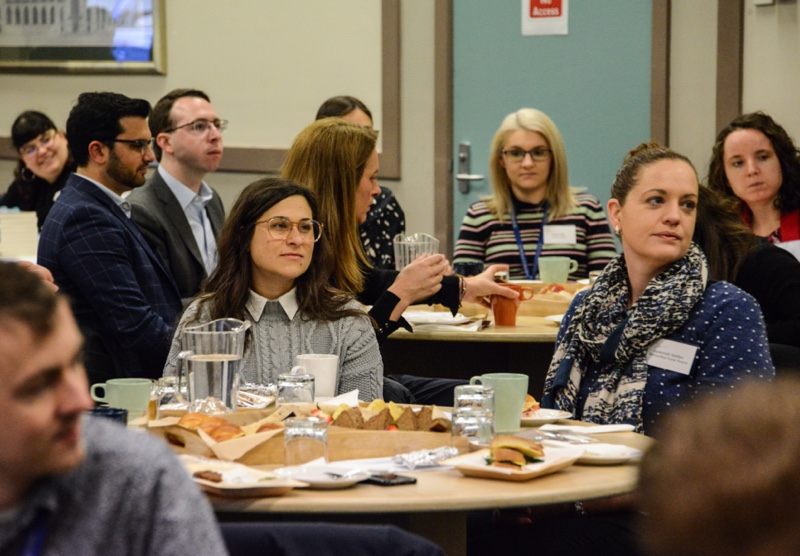‘I therefore renew my appeal: let us take care of our mother Earth … let us overcome the temptation of selfishness that makes us predators of resources, let us cultivate respect for the gifts of the Earth and creation, let us inaugurate a lifestyle and a society that is finally eco-sustainable.
Pope Francis, 2021

The Australian Catholic Bishops’ (ACBC) 2021-22 Social Justice Statement, Cry of the Earth, Cry of the Poor was released in early August, ahead of Social Justice Sunday on 29 August. Each year the Bishops release a major social justice statement in time for Social Justice Sunday, which, over the years have interrogated many dimensions of society and the social mission of the Church. They urge us, as staff and volunteers of Catholic social services and as a part of the Catholic community, to reflect on ‘the bigger picture’ and act together on social, economic and ecological issues.
This year’s statement draws upon Pope Francis’ 2015 ‘encyclical’, Laudato Si (which means ‘Praise be to you’) and responds to the ecological crisis we are living through, and reinforces the message for our need to care for our common home – the Earth we live on and in – and the poor, and that these two actions are inseparable. When the Earth suffers, so too do people, and it’s usually the most vulnerable among us that suffer the most. It argues that our practises and understanding must reflect this link: caring for people means we must care for the world which sustains personal and communal life, and in which all relationships are held. This is an ‘integrated ecology’, which Pope Francis speaks about often.
The statement should make us all think about how we, as leadership, staff or volunteers of Catholic social service organisations, are responding to this challenge. How are we including an understanding of this within our client care plans and activities? How are our organisations considering waste and procurement practises? How are we providing space for discussion and innovation in this area?
Examples within our member organisations
Within our CSSV membership here are a couple of good examples, approaching this challenge in different ways – click the links to find out more:
- Vinnies Victoria certified carbon neutral under the Climate Active Initiative: Vinnies Victoria was the first social welfare charity in Australia to achieve the certification. Vinnies is acutely aware that society needs to decarbonise and leadership in this space is paramount. As Vinnies Victoria provides practical assistance to people in need, and assist in response to environmental crisis such as bushfires, they are motivated by the disproportionate impact changes in climate has on people living in poverty.
- Jesuit Social Services’ Ecological Justice Framework: Communities and individuals already experiencing social and economic disadvantage now face ecological and environmental challenges. These populations are often the least responsible for ecological risks and threats but are the most affected by their emergence. As such, Jesuit Social Services is committed to prioritising ecological justice. Ecological Justice involves an ethical transformation where healthy relationships of exchange, sharing and co-creating become a central principle of pursuing justice. It requires a practical reconciliation of the relationship between humanity and nature, and involves a multi-party approach that includes engagement with governments, businesses, schools, indigenous groups and the wider community. Justice is holistic, it is relational. One practical example of enacting this focus is the work of ‘The Ecological Justice Hub’. This Hub has successfully tested a model of community advocacy, education and training, jobs pathways, and green living demonstration projects.
Pope Francis’ 7-year Action Plan
Five years on from that encyclical, Pope Francis has launched a 7-year Laudato Si action plan, which invites families, parishes, schools, hospitals, organisations and religious orders to make a concrete effort to address and take action on seven goals related to caring for the environment, which also impacts the inhabitants of our Earth. The goals look at: community involvement, adoption of simple lifestyles, ecological spirituality, ecological education, ecological economics, our response to the cry of the earth and our response to the cry of the poor.
This year’s statement resonates with the theme of the most recent NAIDOC week: Heal Country!
‘Healing Country’ is described by the NAIDOC website to mean hearing those pleas to provide greater management, involvement, and empowerment by Indigenous peoples over country. Healing Country means embracing First Nation’s cultural knowledge and understanding of Country as part of Australia’s national heritage. That the culture and values of Aboriginal peoples and Torres Strait Islanders are respected equally too and the cultures and values of all Australians.
Both the theme from NAIDOC week and this Social Justice statement brings to mind the ACBC’s Social Justice Statement for 2006, The Heart of our Country: Dignity and Justice for our Indigenous Brothers and Sisters, where the Australian Bishops re-identified the four areas that Pope Saint John Paul II addressed as continuing issues of concern for Australia.
They were:
- For all Australians to ensure the preservation of Indigenous cultures and to keep working for an inclusive multicultural Australia.
- To seek and explore the points of agreement between Indigenous traditions and those of Jesus and all his people.
- To learn to care for the fragile environment in the excellent manner that the Indigenous peoples had done so.
- To recognise and admit past and continuing injustices as the first step towards beginning a reconciliation.
They way forward is complicated, but best done together. Catholic Social Services Victoria is here to assist our members by way of sharing resources, and helping to disseminate the resources and actions developed within our member’s own work setting. We’ve also done workshops with parishes around Victoria who are working to implement the Laudato Si principles within their own local setting, and last year helped organise a member’s forum to hear about the process Vinnies went through to become carbon neutral.
We are committed to continuing to bring the lens of ‘the cry of the earth and the cry of the poor’ into all we do, and to stand in solidarity with First Nations’ peoples’ work to Heal Country!
Some possible, practical next steps
- Organise your team to read the statement, and discuss it together over lunch.
- Share a part of the statement at your next team meeting as a reflection.
- Hear from Bishops’ across the country speak to the statement, here.
- Read the Bishops’ suggested actions, here.
- There are a number of prayer cards available: Cry of the Earth, Cry of the Poor; Creation & The Trinity; Sacramentality; Conversion; Wonder & Awe
- Plan your next steps on the 7-year journey towards the Laudato Si Goals, here.
- Want to partner with CSSV to explore an idea, hold an event or workshop? Be in touch.
- Be inspired and informed: below is a related piece of work by Jesuit Social Services from 2019, the second part more concretely brings these themes together for our shared social service context.

Join our mailing list
Keep up to date with latest news, information and upcoming events.
We respect your privacy, as outlined in our privacy policy.